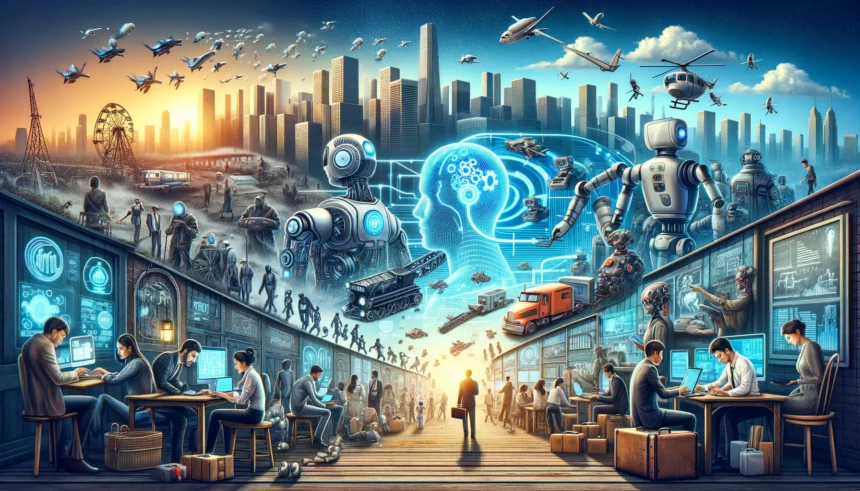The job market is in a constant state of flux, influenced by the ebbs and flows of economic conditions, societal shifts, and technological advancements. In recent years, the latter has played a pivotal role in reshaping the landscape of employment across various sectors. Technological progress, from artificial intelligence (AI) and automation to blockchain and the Internet of Things (IoT), is not just altering the types of jobs available but also the skills required to perform them.
Automation and AI: A Double-Edged Sword
One of the most significant impacts of technology on the job market is the rise of automation and artificial intelligence. These technologies have the power to improve efficiency, reduce human error, and perform tasks at a scale or speed that humans cannot match. However, they also pose a risk to jobs that are routine, manual, or predictable, leading to concerns about job displacement. On the flip side, automation and AI are creating new job opportunities in tech, data analysis, and AI ethics and governance, demanding a workforce skilled in these areas.
The Gig Economy and Remote Work
Technological advancements have also fueled the growth of the gig economy and remote work. Digital platforms enable individuals to offer their skills and services directly to clients worldwide, breaking the traditional 9-to-5 work model. Similarly, advancements in communication technologies have made remote work more feasible than ever before, a trend significantly accelerated by the COVID-19 pandemic. This shift offers workers flexibility and access to a broader range of opportunities but also challenges in terms of job security and benefits.
The Emergence of New Job Roles
As technology evolves, so does the demand for new roles and skills. Positions like cybersecurity specialist, data scientist, and AI developer are becoming increasingly important across industries. Additionally, the integration of technology in non-tech sectors is creating hybrid roles, requiring both domain expertise and technical proficiency. This evolution demands continuous learning and upskilling from the workforce.
The Importance of Soft Skills
While technical skills are crucial in a technology-driven job market, soft skills remain invaluable. Critical thinking, creativity, emotional intelligence, and adaptability cannot be replicated by machines and are essential for innovation and leadership. As automation takes over routine tasks, these human-centric skills become more critical for adding value beyond what technology can achieve.
Education and Training: Adapting to Change
The transformation of the job market underscores the need for education and training systems to adapt. There’s a growing emphasis on lifelong learning and flexible education pathways that can equip individuals with the skills needed in a rapidly changing technological landscape. Partnerships between educational institutions, governments, and industry are vital in developing curricula that reflect the demands of the modern job market.
Technological advancements are undeniably transforming job markets, presenting both opportunities and challenges. As we navigate this changing landscape, adaptability, continuous learning, and a focus on both technical and soft skills will be key to harnessing the potential of technology. Embracing these changes, while also addressing the societal impacts of job displacement, will be crucial for building a resilient and inclusive workforce for the future.
















